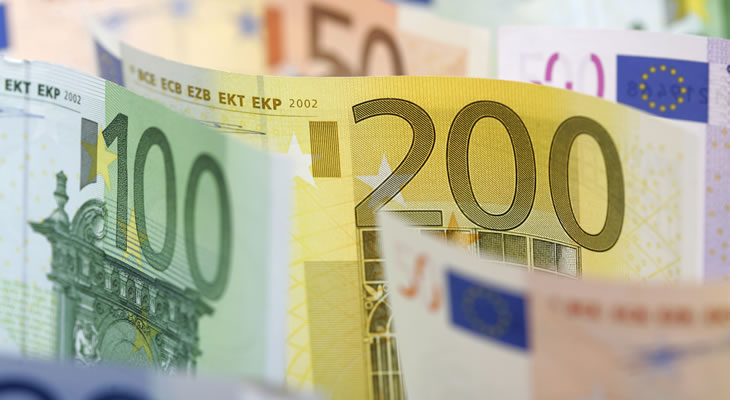The German economy continued to accelerate in the third quarter, giving the Euro Pound exchange rate a fresh boost.
Investors were naturally encouraged to find that GDP had unexpectedly picked up from 0.6% to 0.8% on the quarter, signalling the persistent robustness of the Eurozone’s powerhouse economy.
This is likely to bolster overall Eurozone growth data, increasing the likelihood of the currency union outpacing the US economy for the second consecutive year.
Italy also bettered expectations in the third quarter, offering further encouragement to the single currency on Tuesday.
While the German ZEW economic expectations survey was a little disappointing, showing a smaller increase than forecast, this failed to dent the EUR GBP exchange rate’s bullishness.
Even after this impressive domestic growth, though, the European Central Bank (ECB) is still likely to maintain its neutral to dovish outlook on monetary policy, limiting the upside potential of the single currency.
So long as policymakers continue to express a more cautious note on policy EUR exchange rates could struggle to extend their gains further.
However, the Euro could lose some of its steam if September’s Eurozone trade surplus is found to have narrowed.
With European trade also threatened by the prospect of a hard Brexit any signs of weakness could weigh heavily on the Euro at this juncture.
Pound Extends Losses as UK Inflation Appears to Peak
October’s UK consumer price index data proved discouraging for the Pound, meanwhile, as the headline figure stalled at 3.0%.
This disappointed market expectations, with forecasts having pointed towards a slight acceleration in inflationary pressure to 3.1% on the year.
While this weaker showing may be positive for household finances, though, this raises the likelihood of the Bank of England (BoE) leaving monetary policy on hold for longer.
If inflation has now peaked, as some suspect, there is also a risk that the BoE acted too soon when it raised interest rates at its last policy meeting,
Even so, as researchers at BBH noted:
‘The unchanged report means that BOE Governor Carney does not have to write a letter to the Chancellor to explain the overshoot, which is not more than one percentage point. Although we expect UK inflation to peak here in Q4, it is not clear with today’s report that this is it. That fact that food prices rose 4.2% year-over-year, the most in four years, seems to still reflect the echo of Sterling’s decline from last year.’
Further Pound weakness could be in store on the back of Wednesday’s UK wage growth data, with selling likely to continue if the average weekly earnings figure fails to show any fresh signs of picking up.
Current EUR GBP Interbank Exchange Rates
At the time of writing, the Euro Pound exchange rate was on a strong uptrend in the region of 0.8970. Meanwhile, the Pound Euro exchange rate was slumped around 1.1147.


Comments are closed.